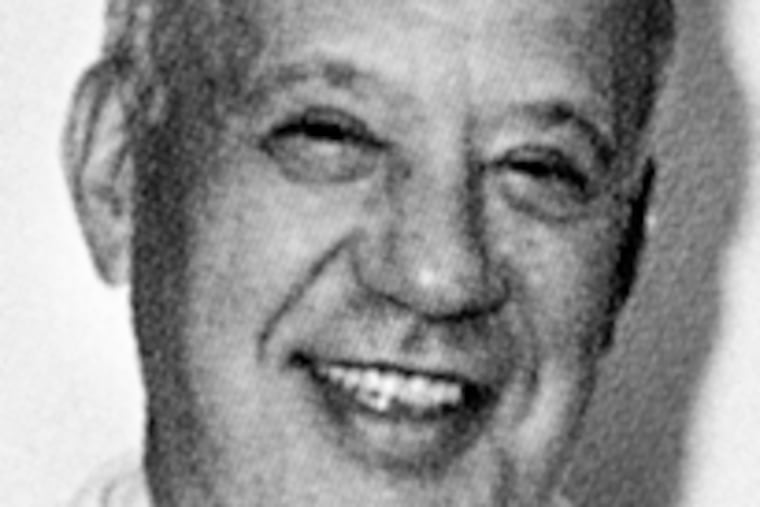A medical pioneer with a special tie to the Flyers
Isadore Brodsky, 77, of Penn Valley, a hematologist and oncologist who performed the first stem-cell transplant in the Philadelphia area more than 30 years ago, died of progressive supranuclear palsy, a neurological disease, on Oct. 6 at home.

Isadore Brodsky, 77, of Penn Valley, a hematologist and oncologist who performed the first stem-cell transplant in the Philadelphia area more than 30 years ago, died of progressive supranuclear palsy, a neurological disease, on Oct. 6 at home.
Dr. Brodsky, a Flyers fan, also was involved with the annual Flyers Wives Fight for Lives Carnival.
Until retiring in January, Dr. Brodsky was chief of the hematology and oncology department at Drexel University's College of Medicine, medical director of the college's Isadore Brodsky Institute for Blood Diseases and Cancer, and managing partner in an oncology and hematology practice at Hahnemann University Hospital.
Since 1976, he and his medical team had performed more than 1,000 bone-marrow transplants on patients with leukemia and other types of cancer. His research projects included the study of retroviruses to control cancer and the use of interferons to treat cancer, leukemia and AIDS. In 2003 he and his son Robert, a hematologist and oncologist at Johns Hopkins University, developed a chemotherapy drug treatment for multiple sclerosis.
For many years, the Brodsky Institute was the sole beneficiary of proceeds from the Flyers Wives Fight for Lives Carnival. The carnival now funds several charities.
The institute was selected as beneficiary of the first carnival in 1977, in part, because Flyers owner Ed Snider served on its board. That year, Barry Ashbee, a Flyers assistant coach and former star defenseman, died of leukemia at Hahnemann. In 1978, research laboratories at the Brodsky Institute were established in Ashbee's name with $200,000 from the first two carnivals.
Dr. Brodsky, who had Ashbee as a patient, told a reporter in 1978 that knowing Ashbee, Ashbee's family and the Flyers family had been a rewarding experience.
"There's a tendency to think sports figures aren't too sophisticated," he said, "but from my association with them, these players and wives are bright young people."
Dr. Brodsky volunteered at the carnival every year, said Mary Ann Saleski, the carnival's chairwoman. He rolled up his sleeves and set up stands, she said, and got the rest of his family involved.
Dr. Brodsky and his wife attended most of the Flyers home games, Snider said. "He was a brilliant doctor and a terrific guy," he said. "He was a lot of fun to be with."
A graduate of Central High School, Dr. Brodsky earned bachelor's and medical degrees from the University of Pennsylvania. He completed a residency in internal medicine at the Hospital of the University of Pennsylvania; served for two years in the U.S. Public Health Service in Bethesda, Md.; and was a National Cancer Institute fellow in hematology before joining Hahnemann in 1962.
Since 1956, Dr. Brodsky had been married to Estelle Tobin Brodsky, whom he met on a blind date.
"Medicine was his life," his wife said. "He was very accessible to his patients. He always gave them our home phone number." He had a "fantastic" speaking voice, she said, and was in demand as a lecturer.
He loved classical music and opera and was an intellectual who read everything, his wife said. He enjoyed family vacations at the Jersey Shore, at Disney World and in Europe.
In addition to his son and wife, Dr. Brodsky is survived by sons David and Jeffrey and five grandchildren.
A funeral was held Monday at Joseph Levine & Sons Memorial Chapel, Trevose. Burial was in Roosevelt Memorial Park, Trevose.
Memorial donations may be made to the Isadore Brodsky Institute for Blood Diseases and Cancer, Drexel University College of Medicine, Broad and Vine Streets, Mail Stop 412, Philadelphia 19102.